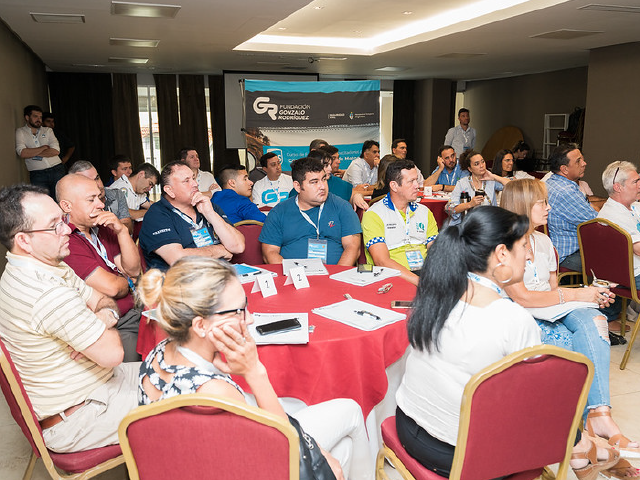
23/12/2020
Improving road safety outcomes through training
According to the report Benchmarking Road Safety in Latin America (OECD/FIT, 2017), motorcycle safety is a growing and critical issue in Latin America. The number of motorcycles is growing in almost all countries and already represents more than 50% of the vehicle fleet in several of them. Their relatively low operating cost, increasing congestion in several cities, and inefficient public transportation - added to the needs of the pandemic in the last year - make motorcycles increasingly popular, especially in cities.
In 2018 in Argentina, where motorcycles represent the second most used vehicle, 5495 people died in traffic accidents, of which 2397 were motorcycle users. Even with mobility restrictions due to the pandemic - where use of transportation was lower, the percentage of motorcyclists killed was higher: 52%.
The problem of these vulnerable users has been ongoing since the issuance of driver's licenses. Driving a motorcycle requires technical skills - more than driving a car - and novice drivers must be trained in these skills since driver licensing systems are the entry point for drivers into the road traffic system; and they can almost always be reinforced to improve road safety outcomes.
That is why in 2019, thanks to the support of the UPS Foundation, the Gonzalo Rodriguez Foundation (FGR) and the National Road Safety Agency (ANSV) signed an agreement to consolidate and strengthen collaboration to generate and update public policies and regulations for road safety practices, with a focus on safe mobility. In this context, the program for training of trainers for safe driving of motorcycles was developed, with the aim of developing and implementing the capacities and technical skills of professionals who teach the mandatory training courses for the granting of the National Driving License Class A for beginners.
During the year 2020, after an edition of the trainers' course that took place at the beginning of March, in the city of Corrientes, due to the global pandemic, the classroom aspects of the course could not be carried out in the field. To continue with the training program, the Gonzalo Rodriguez Foundation decided to implement the FGR Campus platform, and migrate the theoretical training to an online curriculum that includes videos, readings and activities to be performed by the participants to obtain a pre-certification that allows them to access the practical training once Covid's situation allows it.
To start working, the northeast and northwest regions of Argentina were chosen, which are those with the worst indicators of motorcycle accidents. Some provinces in the north of Argentina, such as Santiago del Estero, show a mortality rate of up to 28.6 deaths per 100,000 inhabitants. At the same time, in provinces such as Catamarca, motorcyclists account for up to 67% of all road deaths. The work was then focused on the provinces of Buenos Aires, Catamarca, Chaco, Córdoba, Corrientes, Entre Ríos, Formosa, La Pampa, La Rioja, Mendoza, San Luis and San Juan.
A total of 268 certifying technicians were trained, with the aim that, by having trained technicians, each municipality can exploit the possibility of increasing the number of new responsible drivers on the roads. Municipalities such as Bella Vista and Obrerá (in the province of Entre Ríos and Misiones, respectively) have already begun to implement the knowledge acquired in the course, developing a theoretical course designed specifically for motorcycle license applicants.
- Share: